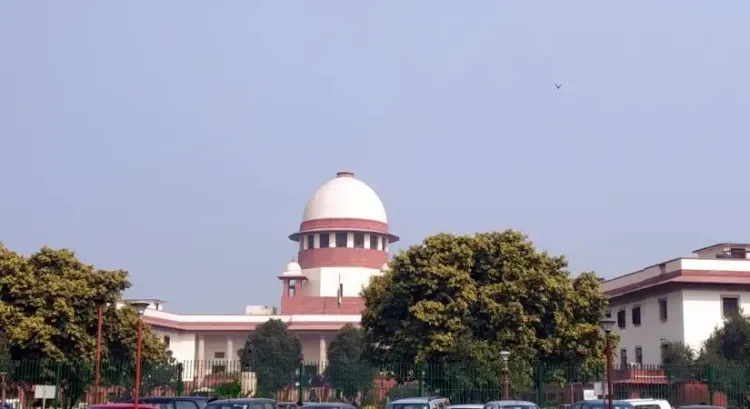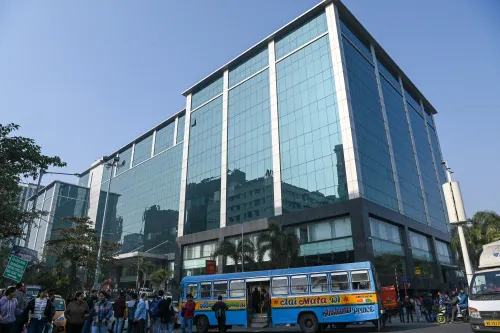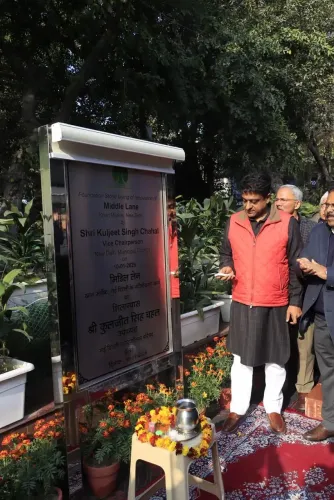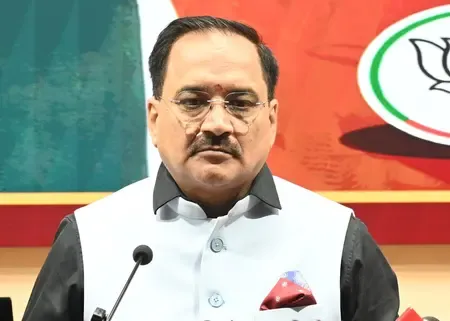Did the SC uphold domicile reservation at NLU Jodhpur?

Synopsis
Key Takeaways
- Supreme Court supports domicile reservation at NLU Jodhpur.
- 25% reservation aims to enhance local student access.
- Rajasthan High Court ruled the policy constitutional.
- Domicile quotas recognized by the Supreme Court.
- Aligns NLU Jodhpur with other institutions' practices.
New Delhi, Sep 18 (NationPress) The Supreme Court has chosen not to intervene in the Rajasthan High Court's ruling that confirmed the 25 percent domicile reservation at the National Law University (NLU), Jodhpur.
The bench, comprising Justices P.S. Narasimha and Atul S. Chandurkar, stated, "We are not inclined to interfere with the impugned order in exercise of our jurisdiction under Article 136 of the Constitution of India. Therefore, the Special Leave Petition (SLP) is dismissed,"
The SLP stemmed from a decision made by the Rajasthan High Court, which rejected a writ petition from CLAT aspirant Anindita Biswas, who argued that the policy was unconstitutional.
On June 10, the bench led by Justices Dr. Pushpendra Singh Bhati and Chandra Prakash Shrimali affirmed that the Rajasthan government was within its rights to implement the quota.
The court noted, "The State of Rajasthan, as the establishment and funding authority of the University, issued the contested notification as part of its policy prerogative to enhance access to legal education for students who are residents of the State. This action is neither arbitrary nor unconstitutional by its nature."
The petition contended that domicile-based reservation infringed upon Articles 14 and 15 of the Constitution and contradicted the National Law University, Jodhpur Act of 1999.
It further claimed that "the domicile reservation for Rajasthan is grossly arbitrary, unreasonable, and violative of Article 14 of the Constitution of India."
However, the Rajasthan High Court disagreed, emphasizing that domicile quotas have been consistently upheld by the Supreme Court.
Quoting previous rulings in Dr. Pradeep Jain v. Union of India and Saurabh Chaudri v. Union of India, the court stated, "Preferential treatment based on residence in a less developed area can significantly help in balancing unequal development levels and such preferential treatment likely meets the Article 14 standard."
The judgment also drew attention to the consistency of other NLUs nationwide, many of which already incorporate state-based domicile quotas.
The High Court remarked, "In this instance, the State of Rajasthan has simply aligned NLU Jodhpur with the established norms followed by its counterpart NLUs across the nation. The state has not acted arbitrarily nor violated any statutory framework in this process."
Finding no wrongdoing in the actions of the Rajasthan government and dismissing the writ petition, the court concluded: "The reservation policy is a constitutionally valid exercise of the State’s discretion in educational matters and does not contravene Article 14."










